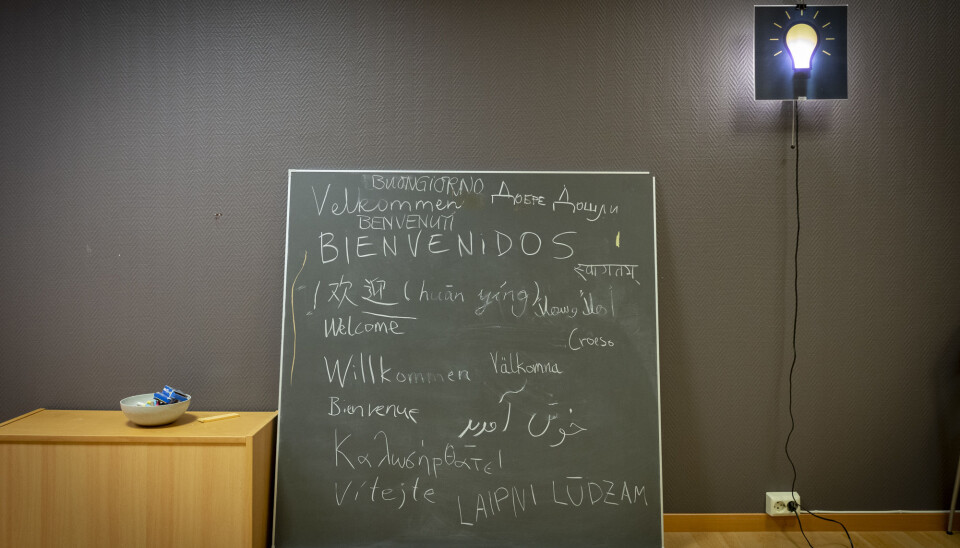Siste fra forsiden:
- Siste
- Mest lest
Debatt ● Nicolas Gibney


Denne teksten er et debattinnlegg. Innholdet i teksten uttrykker forfatterens egen mening.
There can be no doubt that the Norwegian School of Economics is a leading international business school; it has a «Triple Crown» accreditation from the three most prestigious accrediting bodies for business schools (AACSB, AMBA, EQUIS), its graduates are highly sought after both in both academic and private job markets, its researchers produce world-class research published in top journals, but behind this glowing internationally-oriented façade lies a problem which is also rooted-internationally: a severe lack of representation for international temporary staff.
According to NHH’s annual report, the school aims to have greater than 50% of its PhD students and post-docs come from an international background, and on these measures it must be commended: the annual report reports 71,6% of PhDs and 78,4% of post-docs have international backgrounds. By any account, these PhDs and post-docs make a valuable contribution to NHH’s social and research environment; they participate in events, conduct research, teach lectures, and publish at high levels. But these groups are ineligible for representation in NHH’s highest decision-making body, its board.
The NHH board is composed of eleven members, an appointed Chair, three appointed external members, two elected students, one elected member of the administrative staff, three elected permanent faculty members, and one elected temporary faculty member. The democratic problem at NHH arises from the requirement to have an elected member for temporary employees, as the NHH Board requires board members to speak Norwegian fluently.
In the past, this was made clear in Norwegian-language information about submitting candidacy for board elections, and was never a problem, as no non-Norwegian-speaking temporary faculty member had ever won an election to the board. This was, of course, until 2022, when temporary employees elected a board representative who did not speak Norwegian, as well as two deputy members – one Norwegian and one Norwegian-speaking international employee.
Of course, the winner of the board election could not have known that Norwegian was a requirement to be elected – this was only stated in the Norwegian-language requirements for candidacy, not the English-language version. And herein lies a further problem, strict adherence to certain aspects of NHH’s language guidelines and casual disregard for others. The sections of the Language Guidelines, or Språkpolitiske Retningslinjer are points 25 and 26 in the English document and 22 and 23 in the Norwegian document. Respectively these points clarify that the administrative language at NHH is Norwegian, and that NHH shall ensure that all employees and students receive relevant information in a language they understand.
These guidelines were adopted by the NHH Board in June of 2019, and there is nothing in the guidelines, nor indeed in Norwegian law, which requires all business of the NHH board to be conducted in Norwegian, and thus there is nothing in the guidelines nor Norwegian law which would prevent the guidelines from being changed with the intention of allowing international temporary faculty, who again make up a majority of temporary employees, to fully participate in university democracy.
NHH is, of course, not the first Norwegian institution to exclude, intentionally or otherwise, international employees from its board, similar cases were handled by NTNU in 2021 and by UiO in 2022. In the NTNU case, the Ministry of Education was consulted, and it was determined that requiring fluency in Norwegian to be a board member was not discriminatory and was thus an allowed practice. But of course this raises the question: ‘While it’s legal to deny international employees a spot on the board, is it right to?’. And of course, is NHH stronger or weaker as an institution if they deny a majority of temporary employees the right to have their voices heard?
Personally, I am not opposed to the use of Norwegian in academia, nor even to board business being conducted in Norwegian. Obviously NHH, as well as NTNU and UiO are Norwegian institutions, located in Norway, where the official language is Norwegian. I also understand the need and desire to protect and promote the use of a language like Norwegian, which has a relatively small number of speakers, against the constant encroachment of English, which has become more-or-less the default language in academia. Indeed, while I, who by virtue of my upbringing in the United States, am fluent in English, I attended Norwegian-language classes when I studied for a master’s degree at NHH, to be better able to integrate and fully participate in society, and eventually in administrative processes here.
All this to say that the issue in question is not whether or not international employees at NHH should learn Norwegian, the issue in question is whether or not international temporary faculty should be denied their democratic rights to join the highest decision-making body at the institution. Fortunately, there exist a number of solutions:
NHH could follow UiO’s example in providing accommodations for non-Norwegian speaking board members. Translation of documents and simultaneous interpretation of board meetings worked well at that institution, which also recently had its first non-Norwegian board member. The board could also pledge to maintain current measures, which allow for a Norwegian-speaking deputy member to accompany the board member to meetings to translate the portions of the meeting which are in Norwegian.
The NHH Board, which adopted language guidelines in 2019, could adopt an updated set of guidelines more inclusive to a majority of its temporary faculty. Keeping the administrative language of the school as Norwegian, while allowing for the use of English in board meetings would be a simple solution to the language problem. This has, in fact, been partially adopted already; NHH board meetings are conducted in both Norwegian and English to allow the current member for temporary staff to participate as fully as possible.
And of course, a combination of these two options is also possible: to conduct as much board business in English as possible, with interpretation for the rest.
Finally, NHH could take the easiest option: maintaining the status quo. NHH could, like NTNU, refuse to seat the winner of an election who does not speak Norwegian, or even deny them a place on the ballot, disenfranchising their temporary employees and denying this group a seat at the table. Of course, in this case, would it still be proper for NHH to consider itself a top ‘international’ school? And naturally, this option might have longer-term consequences, for who would choose to move to Norway to study at NHH knowing that they would automatically become a second-class employee?
As a temporary employee at NHH, and as a non-Norwegian, I know which option I would pick to create an environment truly deserving of the adjective ‘international’. Does NHH?
Nylige artikler
Søknad klar. Kan bli landets første private universitet
Skulle se forelesninger og skrive oppgaver for studentene. Nå er «Einstein AI» lagt ned
To kulturer blant administratorene
Samme forskningssystem — men hvor er viljen til kompromiss?
Historielause namn på NTNU-bygg
Mest leste artikler
Nobelprisvinnar trekker seg etter Epstein-vennskap
Så mange fikk ikke godkjent doktoravhandlingen sin
Reagerer på kampanje mot «bachelor i irrelevans». — Rakker ned på andre
— Ærlig talt, reklamen fra NMBU er jo bare morsom
Politihøgskolen brukte falske KI-tall: — Jeg legger meg flat